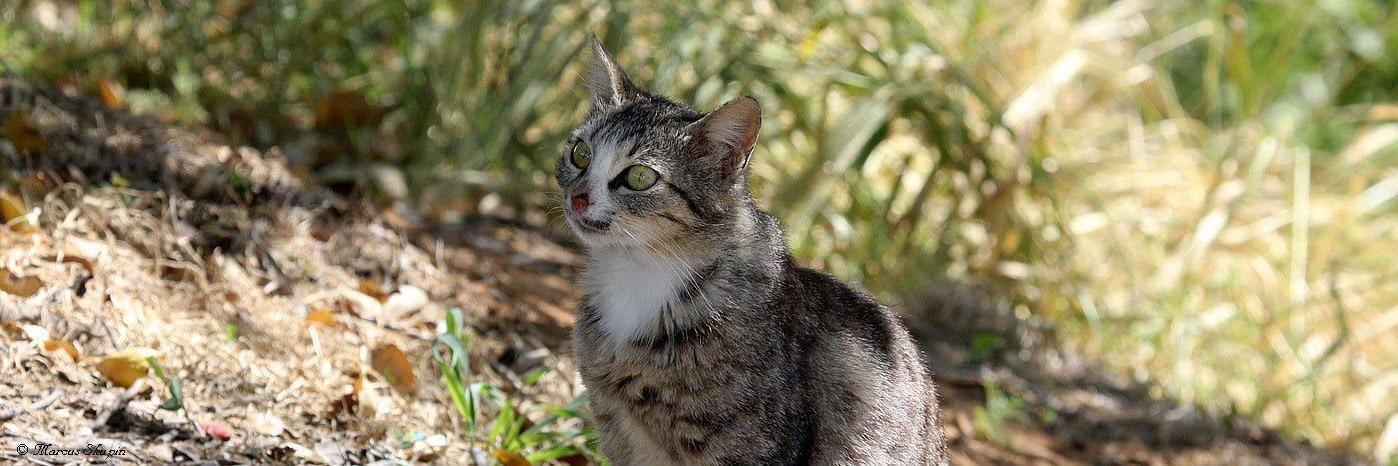Chapter VIII
CHAPTER VIII
The Tigress Mother's Special Duties
So far I have described to you how the tiger cubs learn the lessons of the jungle from their father and mother.
But sometimes they have to learn some of their lessons from their mother alone. Food may be scarce in that part of the jungle. A tiger family eats so much that even if they catch a large wild pig or a deer every day, it will hardly provide more than a single meal for a tiger, a tigress, and two or three growing cubs.
And as they do not usually catch prey every day, the family eats only about two or three times a week. When the cubs are from six to ten months old and need more and more food, one prey at a time is not enough to provide for the whole family if they all live together. So it is better for the family that the father should go away and catch his own food, while the mother catches food for herself and the cubs.
But before going to earn his living elsewhere, the tiger takes his family to the easiest hunting ground there is near their jungle, where there is at least some kind of prey to catch. Then the tiger himself goes to a more difficult hunting ground. So even in that a tiger is kind to his family, and he does the best he can for them.
At first he returns to the family every few days; I suppose he does that to see how they are getting along in his absence. By that time the cubs have learned most of their lessons, and the mother tigress continues the lessons during the tiger's absence.
But after the cubs are ten months old, they have learned all their lessons; they only need to practice what they have learned. As they can do that with their mother, they do not need their father any more. So the tiger then goes on his travels to distant parts.
As the cubs practice with their mother the different ways of catching and killing the prey, she must provide them with many chances of doing so. It is then that she helps the cubs to kill more animals than they can eat. That is why people give the tiger a bad name and call him a "bloodthirsty" animal. It is not he at all, but the tigress mother. And she helps to kill a large number of animals only at this time when she must provide her cubs with the chance of practicing their lessons.
The tiger cubs do not need even their mother when they are two years old. By that time they are quite able to get their own living by catching every kind of prey. But still they usually stay on with their mother for about six months more. Then they leave their mother, and roam the jungle alone, each cub separately.
But each cub still continues to grow in size till the age of four years. A male tiger may even grow in strength till he is six years old.
But you may want to know if a tiger family ever meet again after they have all separated. That may sometimes happen. It may be in the dry season, when nearly all the water in the jungle is dried up. Then by some wonderful instinct all the animals in the different parts of that dry region know that there may be one place where there is water. So a general migration begins toward that place; that is, all the animals begin to travel to that place with their families.
These animals may start from different places a hundred miles apart, and yet after a few days they will get to that same Water Hole. Of course they do not all reach it on the same day; but many of the animals stay near there for a few days, till the rain comes and there is water in other places. So it does happen that a tiger family may meet again at the Water Hole, and then there is a happy reunion among them.
The Truce of the Water Hole
But the tiger family must not kill a prey at the Water Hole. And all other flesh-eating animals lions and leopards, and wolves and hyenas must also abstain from killing prey there. Hundreds of pigs and sheep and deer may have come to drink at the Water Hole - and every flesh-eating animal must abstain from killing any one of the pigs or sheep or deer.
This "Truce of the Water Hole" is one of the greatest wonders of the jungle. It means that in other parts of the jungle there may be a kind of war, because flesh-eating animals may kill and eat their prey, but when all the different animals meet to quench their thirst at the Water Hole, there must be no war no killing, no fighting. There must be peace at that place while the different animals are there.
At the Water Hole the tiger and the lamb may drink together in peace; and hungry as the tiger may be, he must not hurt the lamb. And the wonder of it is that the tiger knows that law, and always keeps it. Likewise all other flesh-eating animals always keep that law; they never hurt even the weakest and most timid animal at the Water Hole.
They all feel that they have come there for a greater need than hunger they have come there to quench their thirst; and the pain of thirst is greater than the pain of hunger.
They feel that the pain of thirst is common to them all; that is, they all suffer from that pain. Different animals eat different things; but they must all drink water. And in that fellow feeling there is peace among them all.
My dear children, let me impress this upon your minds, while you are still young. When you grow up, you may sometimes be tempted to doubt that an all-merciful Providence watches over us. Then remember these wonders of the jungle that I have described to you. And remember especially the Water Hole, where all animals are like brothers, where even the tiger and the lamb drink and lie down together in peace.

